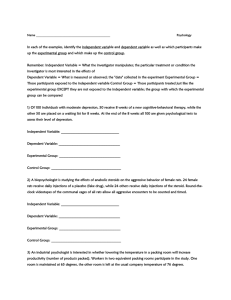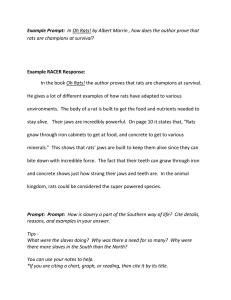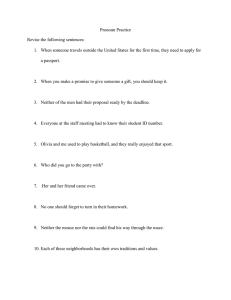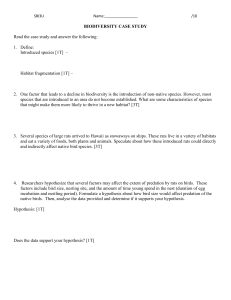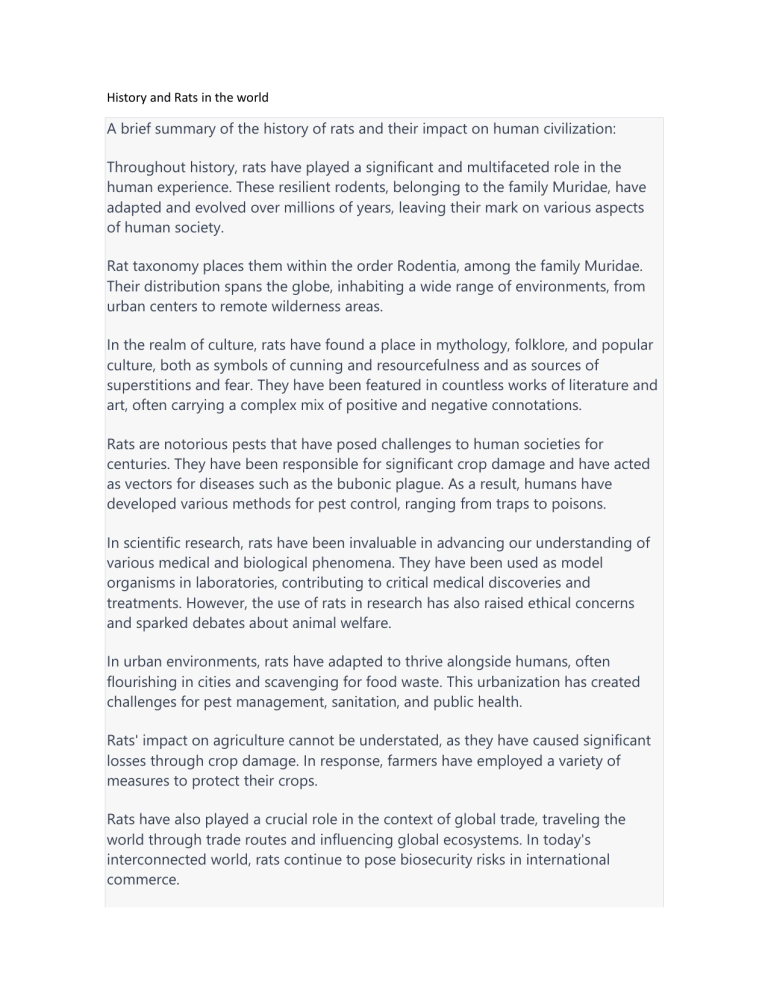
History and Rats in the world A brief summary of the history of rats and their impact on human civilization: Throughout history, rats have played a significant and multifaceted role in the human experience. These resilient rodents, belonging to the family Muridae, have adapted and evolved over millions of years, leaving their mark on various aspects of human society. Rat taxonomy places them within the order Rodentia, among the family Muridae. Their distribution spans the globe, inhabiting a wide range of environments, from urban centers to remote wilderness areas. In the realm of culture, rats have found a place in mythology, folklore, and popular culture, both as symbols of cunning and resourcefulness and as sources of superstitions and fear. They have been featured in countless works of literature and art, often carrying a complex mix of positive and negative connotations. Rats are notorious pests that have posed challenges to human societies for centuries. They have been responsible for significant crop damage and have acted as vectors for diseases such as the bubonic plague. As a result, humans have developed various methods for pest control, ranging from traps to poisons. In scientific research, rats have been invaluable in advancing our understanding of various medical and biological phenomena. They have been used as model organisms in laboratories, contributing to critical medical discoveries and treatments. However, the use of rats in research has also raised ethical concerns and sparked debates about animal welfare. In urban environments, rats have adapted to thrive alongside humans, often flourishing in cities and scavenging for food waste. This urbanization has created challenges for pest management, sanitation, and public health. Rats' impact on agriculture cannot be understated, as they have caused significant losses through crop damage. In response, farmers have employed a variety of measures to protect their crops. Rats have also played a crucial role in the context of global trade, traveling the world through trade routes and influencing global ecosystems. In today's interconnected world, rats continue to pose biosecurity risks in international commerce. Conservation efforts for certain rat species have been initiated to protect biodiversity, as rats' presence can threaten native flora and fauna. Nevertheless, conservation efforts often come with complex ethical considerations regarding the rights of rats and their impact on ecosystems. Looking ahead, the study of rats and their interactions with humans holds great potential for future research in areas such as climate change, public health, and urban planning. Rats, with their rich history, continue to be subjects of interest and concern in the modern world.
